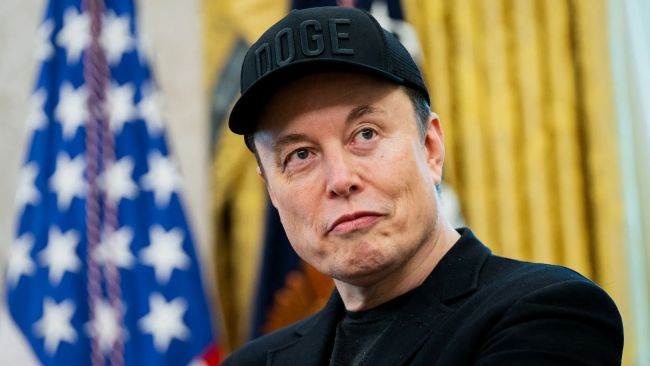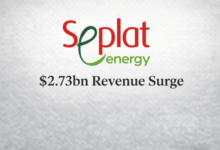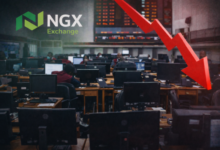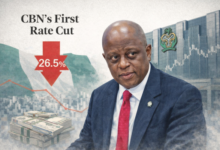Musk Becomes First $500Billion Individual Ever

Elon Musk has become the first person on record to touch the $500 billion mark in personal wealth, according to Forbes, which later fine-tuned the figure to $499.1 billion. The leap reflects a powerful combination of Tesla’s rebound, continued SpaceX valuation gains, and investor excitement around robotaxis, robotics and AI—tempered by the usual caveat: private-company marks and share prices can swing quickly.
Forbes calculated Musk’s wealth at roughly 150 billion dollars more than Oracle co-founder Larry Ellison.
The magazine later revised the estimate slightly down to 499.1 billion dollars.
Musk’s wealth is harder to estimate than that of other billionaires because many of his companies are not publicly traded.
Musk surpassed the 400 billion dollars mark in December 2024, amid investor speculation that Tesla would benefit from his connections to then-newly elected U.S. President Donald Trump.
He frequently visited the White House early in Trump’s term, but relations soured later and Trump threatened to cut federal support to Musk’s firms.
Tesla sales also softened, partly because some potential buyers were put off by Musk’s right-leaning political views and his role in Trump’s federal lay-offs and cost-cutting measures.
Tesla’s stock has since rebounded, bolstered by expectations for growth in robot axis and robotics, and possibly by a spike in sales ahead of the expiration of federal electric vehicle incentives in late September.
Musk’s portfolio also includes social media platform X, AI developer xAI and neural implant company Neuralink. Tesla, however, remains central to his fortune.
What’s New
- Milestone: Forbes estimates Musk’s net worth at ~$500bn, keeping him well ahead of the field—roughly $150bn above the next-placed centibillionaire.
- Why now: A recovery in Tesla shares, plus loftier private-market marks for SpaceX, added billions to the tally.
- Volatility warning: Many Musk assets are not publicly listed (e.g., SpaceX, xAI, Neuralink)—so estimates carry greater uncertainty than peers with mostly public holdings.
- Context: Musk first crossed $400bn in December 2024. Since then, sentiment has swung—from politics-linked controversy and softer EV demand to renewed optimism around robotaxis/AI and pre-incentive EV sales spikes.
Portfolio Snapshot (Value Drivers)
- Tesla: Still the engine of the fortune. Sentiment is tied to EV unit growth, margin repair, and autonomy/robotics optionality.
- SpaceX: A private-market outlier with Starlink cash flow momentum and launch cadence leadership—a valuation anchor.
- xAI & AI bets: Expanding investor fascination with frontier models adds option value even at early revenue stages.
- Neuralink & X (formerly Twitter): Smaller in the stack but headline generators that can influence narrative—and therefore, capital flows.
Market Lens: Why This Matters
- Narrative Power: Musk’s wealth is a proxy for future tech expectations—EVs, autonomy, AI, and commercial space.
- Risk Concentration: A large share is equity-linked; drawdowns in Tesla or a SpaceX repricing would materially move the needle.
- Policy Sensitivity: From EV incentives to launch licensing, government decisions can amplify or dampen valuations.
- Execution Bar: Robotaxis and humanoid robotics remain break-through-or-bust narratives—huge upside if timelines hold, headline risk if they slip.
What Could Move the Number Next
- Upward catalysts:
- Robotaxi roadmap turns into real-world fleets;
- FSD safety/performance clears regulatory hurdles;
- Starlink profitability accelerates and IPO chatter intensifies;
- AI productization at xAI finds paying customers at scale.
- Robotaxi roadmap turns into real-world fleets;
- Downside risks:
- EV demand softness or prolonged price wars;
- Regulatory setbacks for autonomy, rockets or spectrum;
- Private-market multiple compression;
- Reputational/political shocks that dent consumer or investor confidence.
- EV demand softness or prolonged price wars;
Data Caveat
Billionaire wealth lists are point-in-time estimates. For owners of illiquid or private assets, marks can change with new funding rounds, secondary sales, or revised comps. Musk’s stack is especially sensitive to these updates—plus the daily volatility of Tesla.
BRANDECONOMY Take
Thesis: Crossing (or grazing) $500bn is symbolic, but the real story is optionality: markets are valuing Musk’s platform as a set of multi-industry call options—EVs, autonomy, AI, and orbital infrastructure. If two of those options exercise convincingly (e.g., profitable robotaxis and Starlink scale), the half-trillion mark becomes a floor, not a ceiling. If timelines slip, repricing follows.
Bottom line: Musk’s wealth meter is a barometer of how much investors believe hardware + software + space can rewrite cash-flow curves in the next five years.












